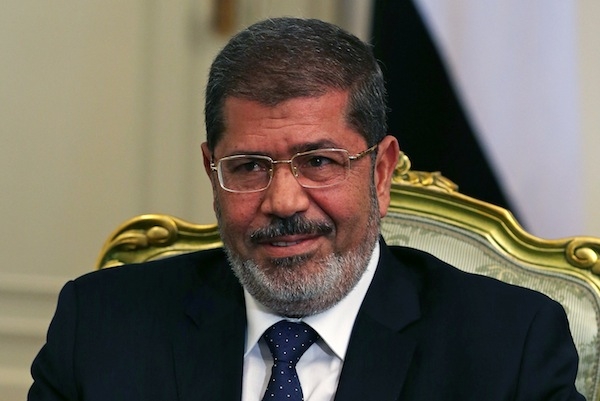Trying to read the tea leaves on Islamist politicians is notoriously tricky. What else could explain why so many Middle East observers have misinterpreted Mohammed Mursi’s decision to visit Iran later this month as confirmation that Cairo’s Islamists are seeking closer union with Tehran?
These fears are misguided. Egypt has not had any official diplomatic relations with Iran for more than thirty years and Mursi’s visit will not change that status quo. He won’t be conducting a state visit but will instead be attending a meeting of the Non-Aligned Movement, a group formed to promote the interests of developing nations during the Cold War. Egypt currently holds its rotating presidency.
The trip has been on the cards for months. Indeed, within days of Mursi winning the presidency, Iran invited him to attend the NAM meeting. He responded by first visiting King Abdullah in Saudi Arabia and has only accepted the Iranian invitation after consulting a number of senior aides. It is assumed that Mursi will find common cause with Ahmadinejad over Israel, the only substantive issue on which the two leaders agree. This has taken on renewed urgency due to heightened fears of a possible Israeli airstrike against Iranian nuclear facilities later this year.
While neither administration is favourably disposed towards the Jewish state it is highly unlikely Mursi would commit anything to an Iranian war plan. Doing so would risk provoking the ire of Gulf States who are needed to prop up Egypt’s economy. Qatar recently committed itself to injecting $2 billion of liquidity into Egypt’s Central Bank, taking its overall level of economic investment in the country to just over $10 billion. The Saudis have also provided $1 billion of liquidity, in addition to a broader package of assistance worth $4 billion.
The Gulf States are hardly enthusiastic supporters of Israel but two things worry them more than anything else: an empowered Iran and regional instability. In the current climate, the two are inextricably intertwined.
With the conclusion of the Organisation of Islamic Conference meetings in Saudi Arabia last week, the most likely explanation for Mursi’s proposed visit is that he is rubber-stamping the Gulf agenda in Tehran. Far from strengthening Ahmadinejad’s hand, that’s a plan which ultimately aims to weaken the Iranian sphere of influence.






Comments